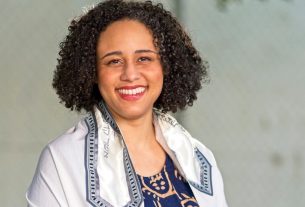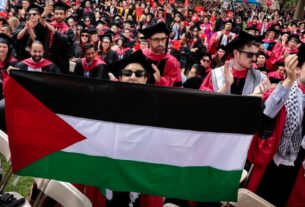So many questions swirled in my head, like burning embers caught up in the wind, each one demanding urgent attention. Will the power be on at the shul, or will we need to accept one of the many kind invitations to join another synagogue for services? Should we pack the cars before heading out for Erev Shabbat, ready to evacuate if the fires — just five miles away — move closer? If we leave our home, will we return to it intact, or will it be gone?
These questions pressed against my mind. What was the right thing to do? How should we prioritize when everything feels so uncertain, so urgent? The weight of these decisions was exhausting, yet the answers remained just out of reach.
As a rabbi, I wondered — I worried: What wisdom could I offer the couple who lost their new home and everything in it? As I sat with them, I questioned whether anything I could say would matter. So instead of filling the space with words, I listened. I gave them permission to mourn — mourning the zecher (remembrances) of their lives: the mementos that reflected their love, the memories of raising their three remarkable children, the sense of safety that was taken so abruptly. I reminded them that their choice to protect life — l’chaim! — was an act of profound Jewish faith.
I struggled: Should I rush back to prepare for services, or drop by another home to light Shabbat candles with a family who had just returned after an evacuation? Dropping by meant delaying the mounting responsibilities of the evening, but I didn’t want to miss this sweet opportunity for connection with people I care deeply about. I chose to drop by. We lit candles together, recited kiddush, and said the words of hamotzi. We were reminded that while their homecoming might not yet feel whole, the act of reciting blessings is a deeply Jewish way to begin healing. That small act of holiness, amidst all the chaos, was Shabbat itself.
I ruminated: What could I say during Shabbat services to comfort the weary without offering empty reassurances? I turned to lessons learned from the 2018 Woolsey Fire, when our community faced similar devastation. I thought of the line in the Tanakh: “… but God was not in the fire. And after the fire, a still small voice” (1 Kings 19.12). I shared this passage with the congregation, reminding them that even when we are overwhelmed, exhausted, and grieving, we can find that still small voice in the love and presence of others. In the quiet strength of our community, we hear the divine echo that reminds us we are not alone. I thought about how, through kehillah, community, we can begin to rebuild — not just homes, but hearts.
A critical question: Should I cancel my therapy appointment because there’s so much to do, or take the time to care for myself so I can better care for others? Back in 2018, I fell into deep trauma from trying to be Superman — trying to hold everything and everyone up, without taking time to let myself process and grieve. So I kept the appointment, talking to my therapist while driving to visit the family who lost their home. We explored the emotional toll of holding so much trauma — from the 2018 Woolsey Fire, from this moment now. I reminded myself of my daily spiritual practices that help me stay grounded: offering blessings each morning to awaken gratitude, studying Torah to fill my soul, eating better, exercising, setting boundaries, and being realistic about what I can and cannot accomplish. Continuing those practices doesn’t erase the weight of this moment, but they help me carry it.
Most excruciatingly, my wife Michelle and I debated whether to evacuate even though we weren’t officially in a warning zone. The decision felt heavy with layers of guilt and anxiety. If we stayed, were we being reckless? If we left, were we abandoning our home too soon? In the end, we decided to leave, spending Shabbat dinner and the night with friends. I thought about how this decision, while difficult, was in line with pikuach nefesh — the principle of preserving life above all else. Perhaps leaving was not only an act of self-preservation but also a way to model thoughtful, life-affirming choices for our children.
Then Shabbat came, and I struggled to let go of the struggles and achieve some sacredness. Standing in de Toledo High School, where we held services because the power at our synagogue still wasn’t on, I lit the candles, recited the blessings, and closed my eyes, hoping to let their flickering light guide me toward stillness. I thought of the couple who lost their home, imagining them lighting candles with the new Shabbat set I had brought as a gift from Or Ami. A small act of rebuilding, even in the midst of so much loss. I struggled to release the weight of the questions and embrace the sacred pause that Shabbat demands.
This Shabbat, the questions didn’t stop. Will the fires shift? Will our home be spared? What comes next? But Shabbat reminded me of the neshama yeteirah — the “extra soul” that tradition teaches we receive each week. It is that divine breath that allows us to pause, to breathe, to gather strength in the stillness and the light. And to know that we will endure.
The views and opinions expressed in this article are those of the author and do not necessarily reflect the views of (JEWISH REVIEW) or its parent company, 70 Faces Media.




